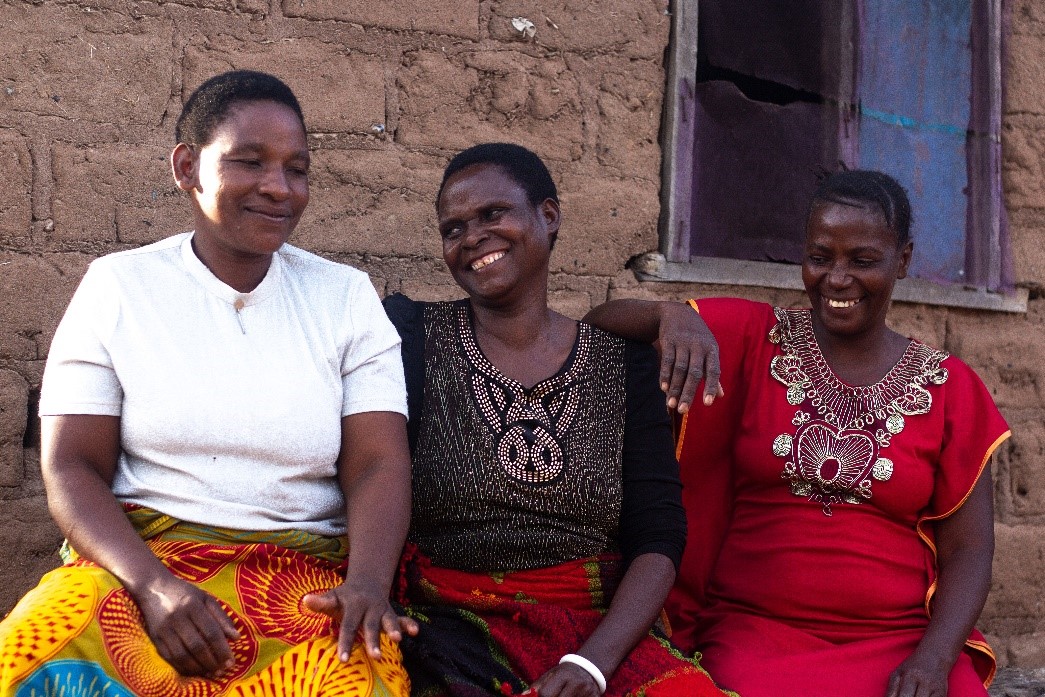Supporting Women and Girls Wellbeing during the COVID-19 Pandemic
News
06 August 2020
Ustawi na Mwanamke Project Beneficiaries
With support from the Embassy, AMREF Health Africa has been implementing the Women and Girls Wellbeing (Ustawi wa Mwanamke) Programme in Misungwi and Itilima districts, aimed at reducing maternal mortality through an integrated health and behaviour change approach. The programme is working to strengthen health and social welfare systems to respond to the needs of pregnant women and vulnerable children. It includes interventions to support reduction of early marriages and teenage high-risk pregnancies (supported by Femina Hip), actions to reduce gender based violence (GBV) (supported by Kivulini) as well as rolling out the Ministry of Health Community Based Health Programme (CBHP) – supported by Benjamin Mkapa Foundation (BMF).
Tanzania announced its first confirmed case on the 16th of March, and as the number of COVID-19 cases increased, the Mission’s priority has been to support government’s efforts to respond to COVID-19 and to mitigate the impact of the pandemic among vulnerable populations. In order to ensure continuity of health service delivery especially for maternal and child health including antenatal care and child immunisations, there is a need to protect frontline healthcare workers and to continue to fill the existing staffing gaps while strengthening the primary health care system. This requires adequate supply of personal protective equipment (PPEs) and strengthening capacity of the frontline workers on infection prevention and control (IPC) skills.
A grant of €1 million to AMREF and their sub-grantee BMF, has been made to continue to strengthen human resources for health particularly the recruitment and deployment of trained health care staff and Community Health Workers (CHWs) to support COVID-19 as well as providing staff with IPC skills and PPEs for protection. The programme will continue to strengthen the Community Based Health Programme by recruiting additional 119 CHWs to cover all the villages in Kwimba district in Mwanza region while also sustaining the 215 CHWs in Misungwi and Itilima districts.
The CHWs will be trained and supported to undertake COVID-19 surveillance and risk communication at community level. AMREF will provide CHWs with tools and PPEs for them to continue visiting households to provide education on family planning as well as identifying risk and teenage pregnancies and refer them to health facilities. AMREF will deploy its mobile application technology (LEAP) which was recently endorsed by the Ministry of Health to train and track CHWs work remotely. This will help to avoid large gatherings of people during trainings and will provide guidance to CHWs to do their work efficiently.
Following the Minister for Health’s recently launched Community Based Health programme policy guidelines and operational guidelines, the costs of the CHWs remuneration will be paid through the health facilities using Direct Health Facility Financing mechanism (DHFF). At the health facilities, the CHWs remuneration costs will be drawn from a number of sources that include contributions from Development Partners and other donors, contributions from the communities, funds collected through Village Health and Nutrition Days, District contributions and Community Health Insurance Fund (CHF).
Through this grant, AMREF and BMF will recruit and deploy additional 30 health care clinicians and nurses to strengthen the health care system in the districts. This support will not only strengthen the capacity of the health system, but also allow for scaled-up staffing to rural areas.
Overall, this grant aims to ensure that the district health system is better able to cope. As the health system is strengthened, the primary health care system is better able to respond to the most pressing health needs of the communities whatever these may be.


